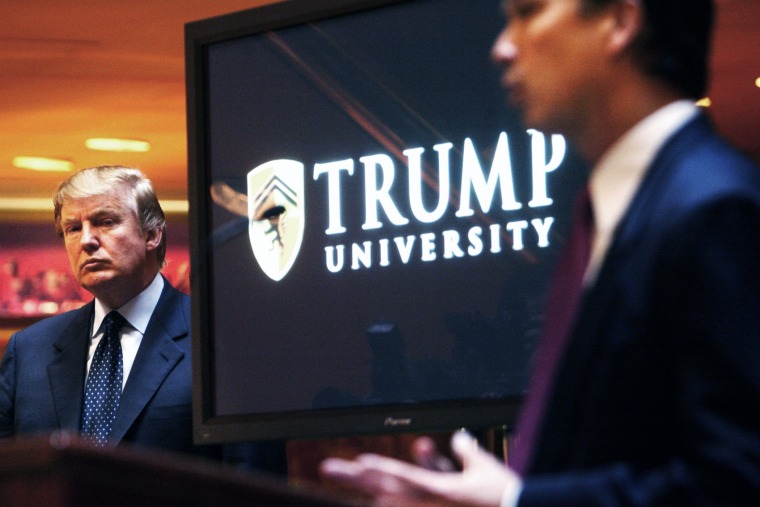As with Trump University, the Trump Institute promised falsely that its teachers would be handpicked by Mr. Trump. Mr. Trump did little, interviews show, besides appear in an infomercial -- one that promised customers access to his vast accumulated knowledge. "I put all of my concepts that have worked so well for me, new and old, into our seminar," he said in the 2005 video, adding, "I'm teaching what I've learned." Reality fell far short. In fact, the institute was run by a couple who had run afoul of regulators in dozens of states and been dogged by accusations of deceptive business practices and fraud for decades. Similar complaints soon emerged about the Trump Institute. Yet there was an even more fundamental deceit to the business, unreported until now: Extensive portions of the materials that students received after forking over their seminar fees, supposedly containing Mr. Trump's special wisdom, had been plagiarized from an obscure real estate manual published a decade earlier.
The institute was another example of the Trump brand's being accused of luring vulnerable customers with false promises of profit and success. Others, besides Trump University, include multilevel marketing ventures that sold vitamins and telecommunications services, and a vanity publisher that faced hundreds of consumer complaints. Mr. Trump's infomercial performance suggested he was closely overseeing the Trump Institute. "People are loving it," he said in the program, titled "The Donald Trump Way to Wealth" and staged like a talk show in front of a wildly enthusiastic audience. "People are really doing well with it, and they're loving it." His name, picture and aphorisms like "I am the American Dream, supersized version" were all over the course materials. Yet while he owned 93 percent of Trump University, the Trump Institute was owned and operated by Irene and Mike Milin, a couple who had been marketing get-rich-quick courses since the 1980s.
